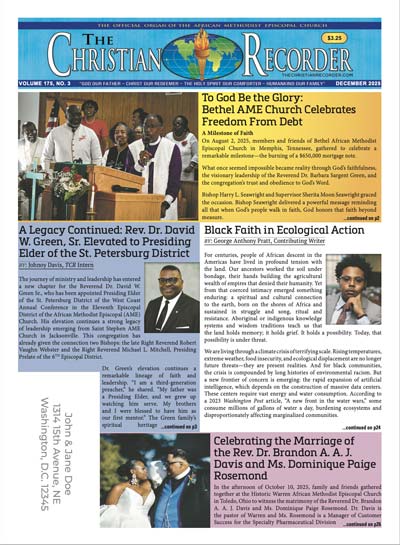By Rev. Dr. Marcellus A. Norris
Churches Drift Because Their Leadership Drifts
Arnold Cook, in Historical Drift, offers a powerful observation: “Organizations don’t drift, only their leaders.” This statement places the focus squarely on those at the helm—pastors, elders, and ministry leaders. When a church begins to lose its direction, spiritual passion, or theological grounding, it is often a symptom of a deeper issue—a drift in the convictions, priorities, or vision of its leadership.
Drift is rarely abrupt; it’s usually subtle and incremental. Leaders might start with small compromises—neglecting prayer, softening doctrinal stances, or prioritizing programs over people. Over time, these small shifts accumulate, leading the church as a whole into unfamiliar or even unhealthy territory.
“There is a backsliding in the pulpit before there is a backsliding in the pew.”
This phrase cuts to the core of church dynamics. The spiritual temperature of the congregation is often a reflection of what’s happening in the pulpit. If pastors or leaders begin to cool in their love for Christ, drift from the Word of God, or lose their sense of purpose, that apathy inevitably trickles down to the people. Just as a shepherd’s direction determines the path of the sheep, the trajectory of leadership sets the course for the entire church.
A pulpit that loses its prophetic voice, gospel-centered focus, or spiritual vitality creates an atmosphere where compromise becomes normal, zeal is replaced with routine, and truth is diluted for comfort.
Churches Drift When There Is a Lack of Vision
Proverbs 29:18 declares, “Where there is no vision, the people perish: but he that keepeth the law, happy is he.” Vision is essential to keeping a church aligned with God’s mission. Without clear, Spirit-led direction, a church loses its sense of purpose and begins to coast—eventually drifting into irrelevance or dysfunction.
Vision acts like a compass. It gives leaders the ability to say “yes” to the right things and “no” to distractions. When leaders lack vision, they begin to react rather than lead. Programs replace purpose. Maintenance replaces mission. The church starts to simply exist rather than advance the Kingdom.
However, the second part of the verse offers hope: “He that keepeth the law, happy is he.” This implies that when God’s Word is central and obeyed, joy, clarity, and spiritual health follow. A vision grounded in Scripture—not just good ideas or modern trends—will anchor the church and guard it against drift.






